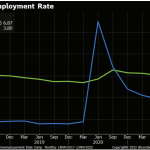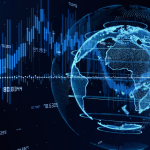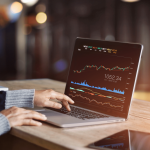Please log in to view this content.


by Daniels Trading
Please log in to view this content.

by Daniels Trading
Price is the current value of a security as determined by open market forces. It’s the product of an ongoing and unfettered interaction between buyers and sellers. Subsequently, as bids and asks hit a market, the relative value of the security in question evolves. This process is known as price discovery. Price action is the… Read more.

by Daniels Trading
The foreign exchange market, or forex (FX), is a decentralized, electronic currency trading venue. Featuring more than U.S. $5 trillion in average daily turnover, the forex is the world’s largest market, far surpassing the premier U.S. equities and futures exchanges. Given its enormous size, depth, and offerings, the forex is a primary destination for active… Read more.

by Daniels Trading
Forex vs. Futures: Pros and Cons For active traders, the forex versus futures quandary can be a real head-scratcher. Securing the necessary resources, finding a brokerage outlet, and building a viable trading plan are all critical undertakings that vary per market. Still, an essential question persists: Is there really much difference between trading forex and… Read more.

by Daniels Trading
For investors and producers who participate in the global markets, currency risk is a very real consideration. Currency risk, also known as exchange-rate risk, emerges when foreign currencies unexpectedly appreciate or depreciate against one another. In the event that traditional correlations suddenly become stressed or irrelevant, once sturdy monetary relationships degrade―and currency risk runs rampant.

by Daniels Trading
In terms of capitalization, the world’s largest market is the forex. With more than $5 trillion in daily traded volumes, the forex market offers participants a high degree of efficiency due to its robust depth and liquidity. For many traders, the forex is a premier avenue for the pursuit of almost any financial goal. Forex… Read more.

by Daniels Trading
Perhaps the oldest standardized mode of trade involves the swapping of foreign currencies. Exchanging one form of money for another has long been an unavoidable aspect of travel, as well as a speculative endeavor. Whether you’re a professional arbitrager or simply striking out abroad, the currency trade is an indispensable component of international commerce.
